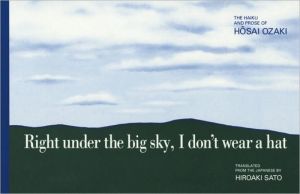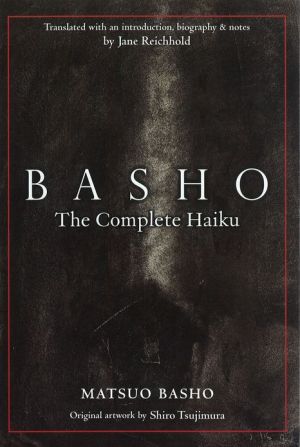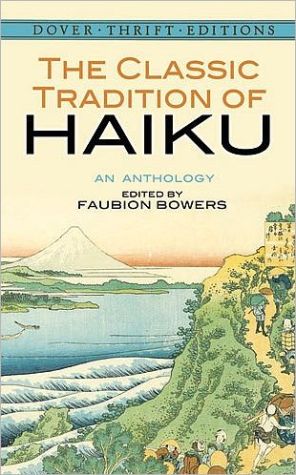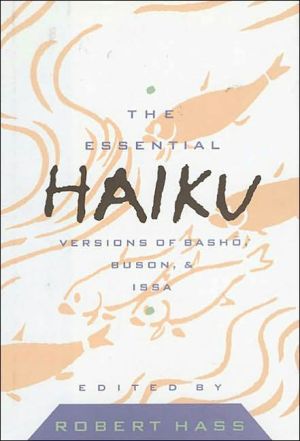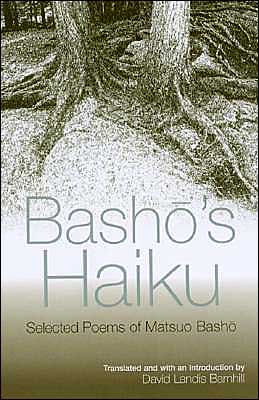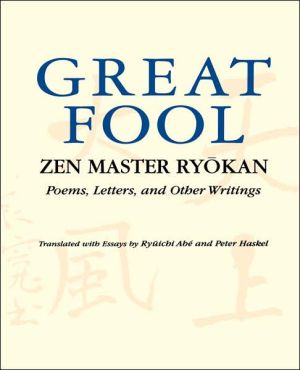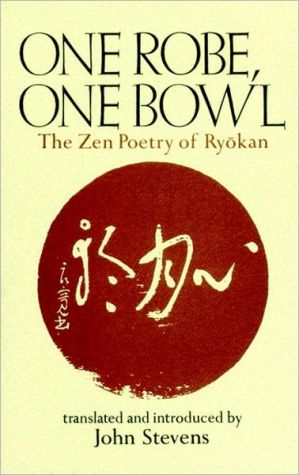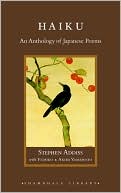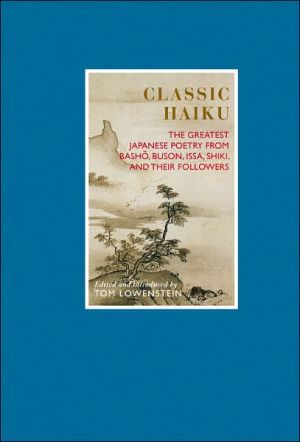Right under the big sky, I don't wear a hat
One of Japan's most gifted poets, Hosai Ozaki started out as an insurance salesman, but alcohol and despair finally led him to a small Buddhist temple on an island off Shikoku in southern Japan. There he spent his remaining days doing simple chores, subsisting on a diet of toasted rice and water, and writing about loneliness and poverty. Hosai's great gift was his ability to place himself at a slight distance from existence and observe with a razor-sharp awareness the everyday objects that...
Search in google:
One of Japan's most gifted poets, Hosai Ozaki started out as an insurance salesman, but alcohol and despair finally led him to a small Buddhist temple on an island off Shikoku in southern Japan. There he spent his remaining days doing simple chores, subsisting on a diet of toasted rice and water, and writing about loneliness and poverty. Hosai's great gift was his ability to place himself at a slight distance from existence and observe with a razor-sharp awareness the everyday objects that inhabit our world: doorways, shadows, leaves, food containers, the fingers on a hand. The effect is magical and disturbing. Also here are Hosai's prose pieces from "On Entering a Temple House," which meditate on his past, on the workings of his mind, and on the sounds, smells, and views outside his temple window.Author Biography: Hosai Ozaki (1885-1926) is one of Japan's most gifted poets. His free-form writing helped extend the haiku beyond its traditional language, rhythms, and seasonal imagery.; Hiroaki Sato is also translator of Basho's Narrow Road. Stone Bridge Press is a leading English-language publisher of Japanese literature in translation. Our ROCK SPRING COLLECTION OF JAPANESE LITERATURE features absorbing and important translations of classical and contemporary Japanese fiction and poetry. We believe that literature is a window into culture and society, and an expression of what is most peculiarly, and universally, human
Foreword8Introduction10On Translating Haiku in One Line21HaikuEarly HaikuAround 190524In Tokyo, around 190827The Big SkyFrom Tokyo to Seoul, 1916-2330At Itto-en, Kyoto, 1923-2440At Suma Temple, Hyogo, 1924-2542At Joko Temple, Obama, 192585In Kyoto, 192593At Nango-an, Shodo Island, 1925-2694ProseOn Entering a Temple HouseUntil Coming to the Island122The Sea125Bell-Clinker128Stones132Wind135Lights139
